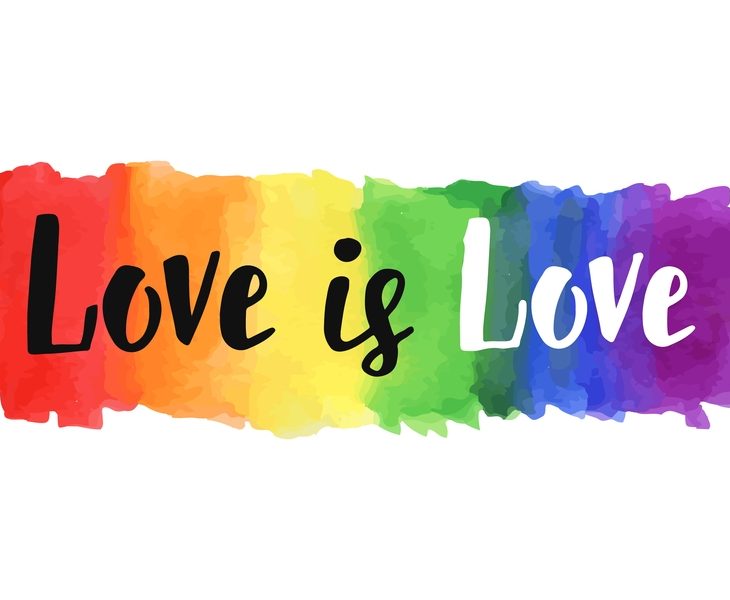
I’m in the chapel at Union Theological Seminary in 1991. The hymn is “They Will Know We Are Christians by Our Love” and I, inexplicably, have tears in my eyes. The hymn is known to be a bit too sweet, a bit too simple, but on that day, when I was visiting Union as a prospective student, it was what I needed to hear and to sing as a gay man who felt a call to the Christian faith. I needed to feel love, and I wanted to be known by how I loved, to be known by Love.
Of course, I had experienced love before, and often in unexpected places. Some of the most vibrant love locations during that time were the nightclubs in New York City. It was at the height of the AIDS pandemic in New York, where people were dying and those alive were in perpetual grief. Yet, on the dance floor, we would listen to the DJ play songs about the transcendent power of love, and we would know that in this place we belonged, and be lifted up, that we were free.
While at seminary I became a co-chair of the LGBT caucus, which we playfully renamed “The Love Caucus” as we wanted our group’s reputation to lead with the fierce love we had for one another, for the world, and for the Holy Spirit that suffused our daily lives. It’s worth remembering how radical it was, even in 1991, to proclaim oneself queer and faithful, and how many doors that truth shut if you wanted a career in religious leadership. Many of us wrestled with why we were devoting our lives to an institution that continued to shun and condemn us. In my own case, I was told privately that the only way I could be ordained was to follow the don’t ask, don’t tell rule –so they didn’t ask, and I didn’t tell.
A lot has changed in the last 30 years since I first sang the Love Hymn in the Union Chapel and danced to Love Anthems in nightclubs. A recent poll conducted by PRRI shows that Americans now oppose discrimination against gay people by a large margin, including every party affiliation, every religious group, and racial and ethnic background. Although there are still denominations and faith traditions that prohibit LGBT leadership, we have made many critical advances.
Part of the reason for our progress is that the LGBT community has become known for our Love.
Common refrains heard during Pride such as “Love Wins” and “Love is Love is Love” reflect the centrality that Love plays in our messages to the wider world. When we proclaim Love, it is not only the kind represented in a bond between two people that results in marriage – and marriage equality. But also, of the importance of creating loving spaces of belonging where people have the freedom to be who they are. It is also the lifesaving necessity of loving ourselves enough to be true to our sexuality and our gender identity – and to achieve our own lives and our love, even when we are scared, and facing societal opposition. We lead with love; which invites allies and friends to join us and translate our love to justice.
As a religious leader, I invite my colleagues in the Church and in other faith communities to not look at the LGBT community as competition or a threat, but instead as role models for how to be known by Love. Not a love that erases, but a love that affirms, a love that liberates, a love the sustains and redeems and sanctifies. As a Christian, I believe in the Good News that each person – of every sexuality and gender – is wonderfully made, a reflection of the Divine, an embodied vision of Holiness. Whether I meet you in church, on the street, or on the dancefloor, as best as I can – I want you to know me by my love.
In my first year of seminary, I went downtown to my old neighborhood in the East Village to attend the annual celebration called Wigstock. RuPaul walked to the front of the stage and shouted out to the crowd – “Let me hear you all say, Love!” and the crowd roared back “LOVE!” and then RuPaul shouted back “Let me hear you say, Revolution” and the crowd yelled even louder “Revolution” and then the 6’6 Black Drag Queen preached to the crowd of queers and misfits about the Love Revolution that we were a part of – and it felt like Church then, and it still does today. We are being called – whether religious, or queer, or some of both, to a Love Revolution where none of us are left behind, and all of us are celebrated for the lovely, divine creations we are.
Share
Related Articles
American Civic Life
Higher Education
American Civic Life
Podcast: W. Kamau Bell on Awkward Relationships and Bridging Divides



